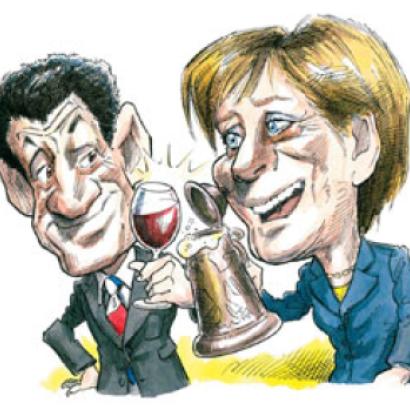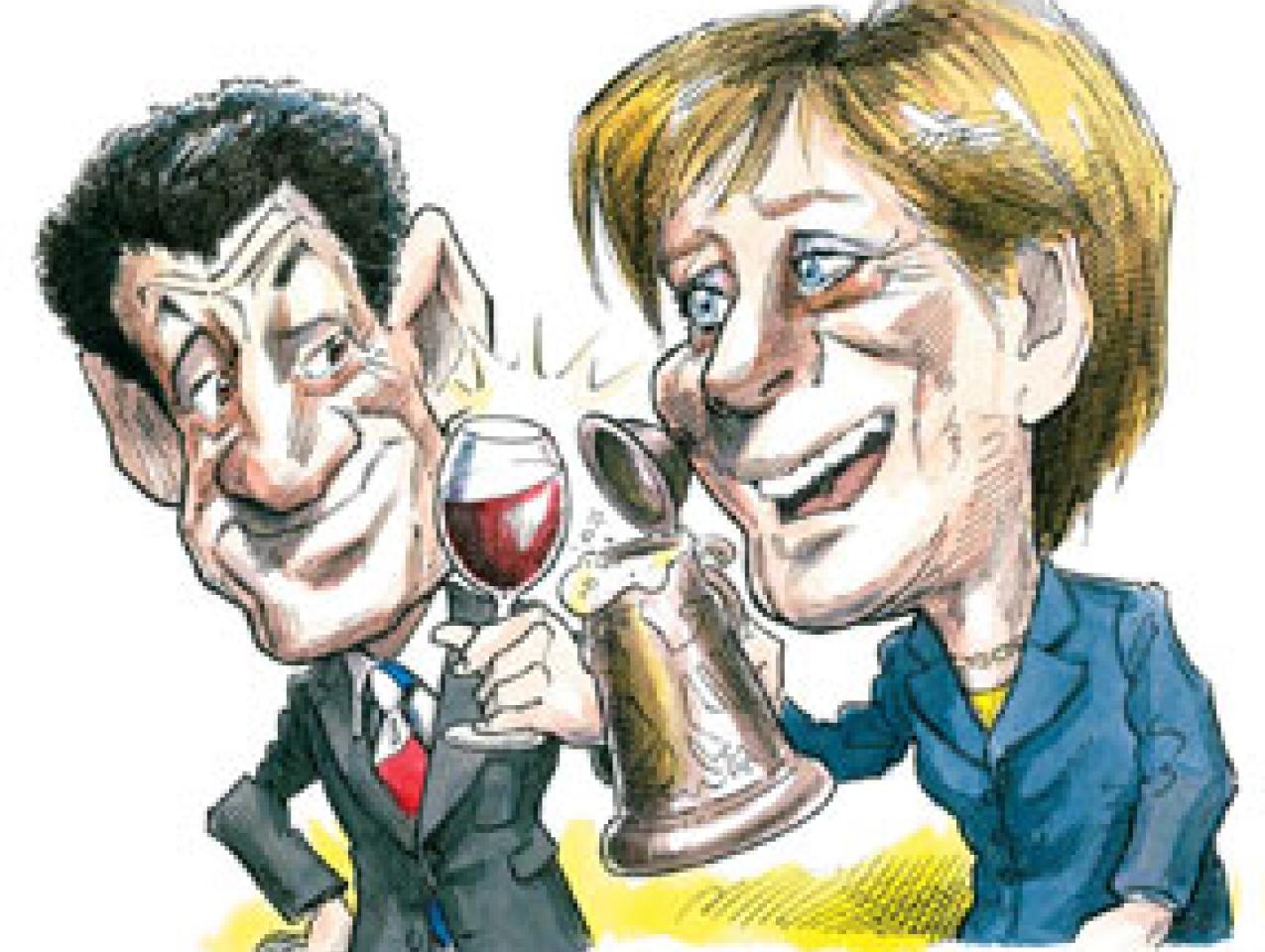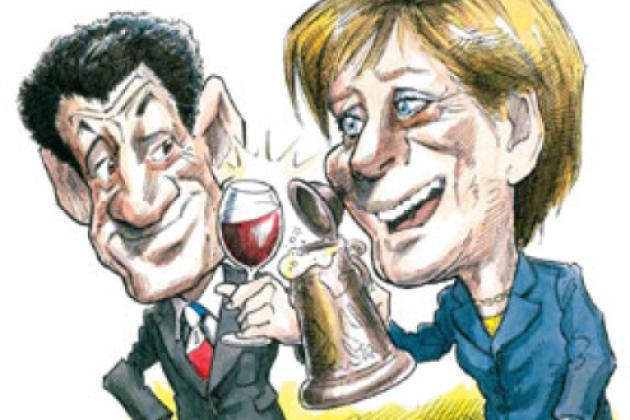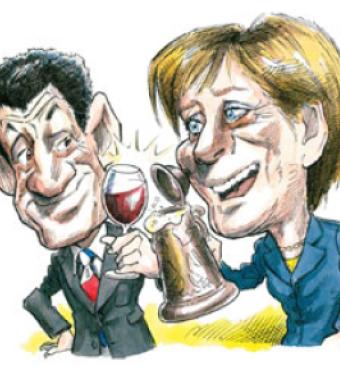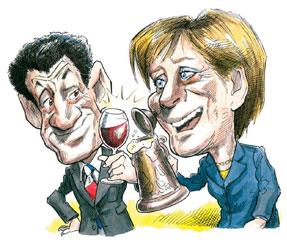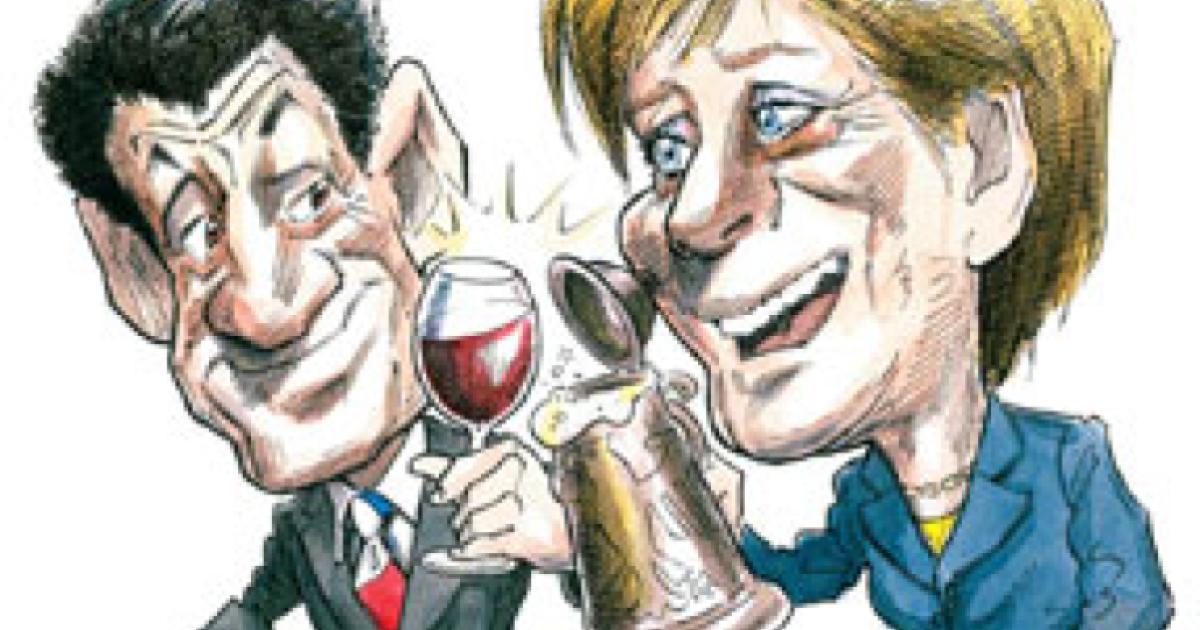- Economics
- Law & Policy
- Regulation & Property Rights
- US Labor Market
- International Affairs
- US Foreign Policy
In gearing up to take France on a new economic course, French President Nicolas Sarkozy has choices not confined to Anglo-American neoliberalism and the dying French model of social protection. There are other viable alternatives, such as the German model. Germany, after all, is now one of the fastest-growing countries in the euro zone, so it must be doing something right.
That something is being competitive in world markets. German competitiveness did not just happen. It is the result of enormous corporate restructuring, which increased labor productivity, and of German trade unions’ willingness to accept modest wage increases. It took several years for trade-union restraint to flower into robust competitiveness, but flower it did.
Even in the current period of growing optimism about the German economy, the trade unions are showing themselves to be moderate. IG Metall, Germany’s largest industrial union, which bargains for 3.4 million metal, electronics, and auto workers, this year secured an increase of 4.1 percent in 2007 and 1.7 percent in 2008 for German manufacturing workers— a settlement generally considered balanced and justifiable.
Public-sector unions also can affect a nation’s competitiveness in global markets, albeit indirectly. In recent years, they too have been cooperative in Germany, though there is some concern that next year’s big wage negotiations could be difficult.
The German example is highly relevant for France and Sarkozy at this critical juncture. Whereas many argue that France can move forward only by adopting the Anglo-American neoliberal model, Germany’s success clearly demonstrates that the claim that only the free market can produce prosperity is bogus. An enlightened corporate state, where unions fully support growth and competitiveness objectives, can deliver the economic goods as well as more decentralized systems. (Sweden is another country that proves this point.)
Particularly important for Sarkozy—a politician who wants to get things done—is that the German model can be implemented in France with the right sort of political leadership. Transforming France into a second America, on the other hand, is no more than a pie-in-the-sky dream that would be certain to end in failure and disarray—and which few French want, in any event.
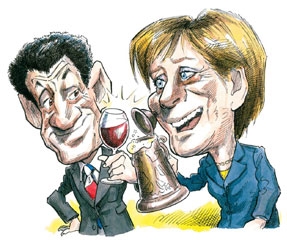
There are encouraging initial signs that Sarkozy is ignoring calls from the neoliberal camp for radical change. He has picked the moderate François Fillon as prime minister, indicating that he plans to take the evolutionary route rather than tilt at the windmills of revolutionary change.
A further lesson for Sarkozy from Germany is that an enlightened corporate state needs supportive political leadership as well as accommodating trade unions. German Chancellor Angela Merkel doesn’t make speeches attacking the strong euro and the European Central Bank’s price-stability mandate. On the contrary, she supports an independent ECB and has let Germany’s trade unions and companies know that they will have to live with a strong currency and an anti-inflationary monetary policy.
This does not mean that Merkel is a free market capitalist—there is little evidence of that. Rather, she simply understands that for an economy that needs to stay competitive, bad-mouthing the euro and the ECB sends the wrong signals.
Sarkozy’s behavior during the presidential campaign was scandalous in this regard. He consistently blamed France’s poor export performance on the strong euro, favoring a politically subservient ECB whose mandate should include economic growth as well as price stability. His attacks on ECB President Jean-Claude Trichet were often vicious and personal.
His stances also were at odds with improving French competitiveness. Why should the French undertake painful reforms when their newly elected leader has just promised to protect them from a strong currency and further interest-rate increases? Why not simply wait for Sarkozy to get the euro down and the ECB to lower interest rates?
According to Trichet, Sarkozy has reversed course since his election and no longer will press the ECB to broaden its mandate.
What Sarkozy has announced so far is his intention to cut income taxes, reform public-sector unions, and give tax breaks for overtime work. These are precisely the sort of step-by-step reform measures—both beneficial and feasible—that the new French president should be pursuing.
Sarkozy’s first foreign trip as president was to visit Chancellor Merkel. Let’s hope he listened attentively. A new Franco-German axis that makes France more competitive is just what Europe needs.








